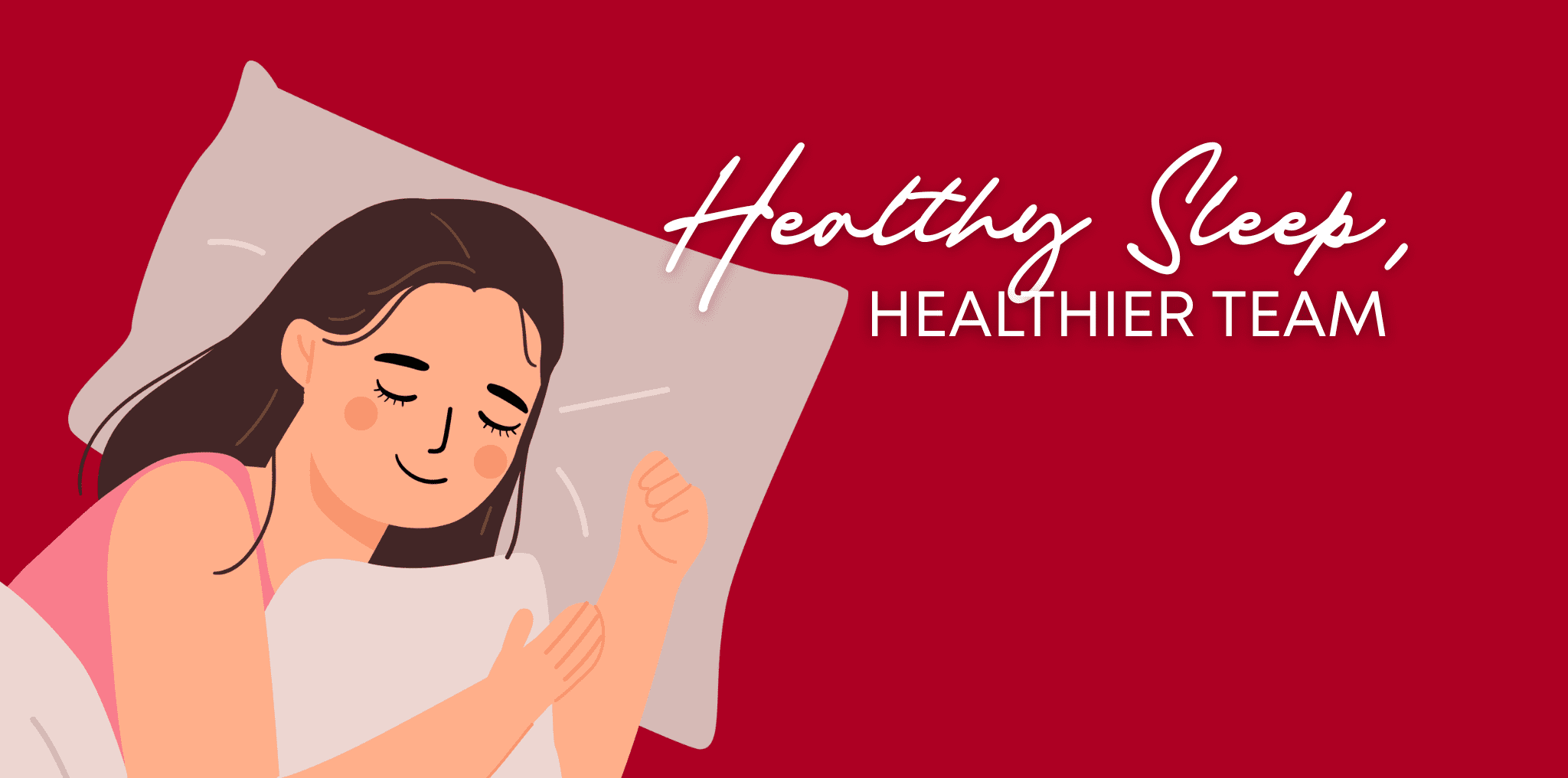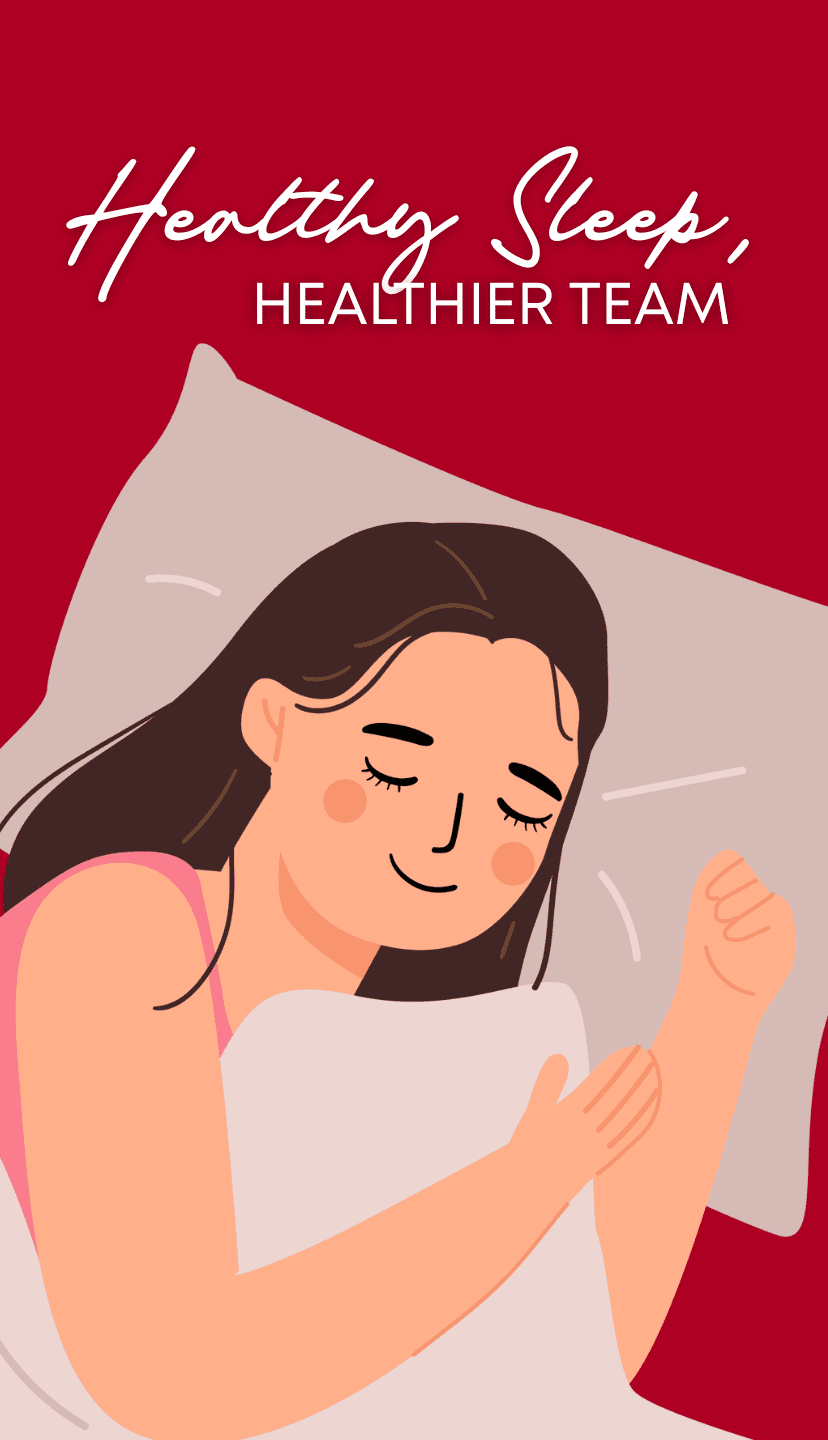How Texas Children’s Supports Healthier Sleep Habits for Employee Well-Being
It’s midnight, and your mind won’t stop racing. You’ve counted sheep, adjusted pillows, and even avoided looking at the clock—but sleep eludes you. If you’ve ever experienced restless nights, you’re not alone. Despite the AASM recommendation that adults sleep at least 7 hours a night, 2020 data from the National Center for Health Statistics shows nearly 15% of American adults regularly have difficulty falling asleep and many struggle to stay asleep.
A good night’s is essential for our minds and bodies to function at their best. But achieving restful sleep can be challenging, especially for healthcare professionals balancing busy schedules and personal responsibilities. At Texas Children’s, we know that employee well-being is foundational to exceptional patient care and our mission. That’s why we actively provide resources to support healthy sleep habits, empowering our team members to thrive both personally and professionally.
Comprehensive Care for Medical Sleep Issues
Sleep problems typically fall into two categories: medical and behavioral. At Texas Children’s, we address both through specialized programs and expert care.
Dr. Ramona Burdine, a physician at Texas Children’s Employee Medical Clinic (EMC), notes:
“Medical issues I commonly see associated with poor sleep include obstructive sleep apnea, chronic musculoskeletal pain (for example back pain), and restless leg syndrome, frequent need to use the restroom with disrupted sleep cycles, anxiety and depression.”
Dr. Burdine, certified by the American Board of Family Practice with over 25 years of experience, stresses the importance of addressing these underlying health concerns. At Texas Children’s, our employees have access to full-service primary care through our EMC, as well as a wide range of occupational health services through Employee Health.
The Mind-Body Connection: Behavioral Health and Sleep
It’s not only physical health impacting sleep. Mental health plays a significant role as well. Emily McElmurry, a licensed professional counselor in Texas Children’s onsite Employee Assistance Program (EAP), emphasizes:
“We all know sleep can affect our mood. However, there also seems to be a bidirectional relationship between sleep and mental health in which sleeping problems may be both a cause and consequence of mental health problems. If you are having trouble falling asleep or staying asleep because of worrying thoughts or you are sleeping too long, these may be behavioral health symptoms affecting your sleep.”
Emily, who serves our North Austin Campus, has more than 20 years of clinical experience and is nationally recognized for her presentations on suicide prevention and mental health awareness. She reinforces that good sleep and mental wellness go hand in hand, teaching Texas Children’s employees strategies such as mindfulness meditation and guided relaxation techniques to quiet the mind and promote restful sleep.
Our EAP also provides resources to address behavioral sleep issues like insomnia and anxiety-induced sleeplessness. The program utilizes evidence-based cognitive behavioral therapy (CBT) to help employees identify sleep triggers, change negative thinking patterns, and establish healthier sleep habits.
Practical Strategies for Better Sleep
Cultivating healthier sleep habits can improve both your health and job satisfaction. Here are five practical sleep hygiene suggestions:
- Create a relaxing pre-sleep routine: Activities like reading quietly, taking a warm bath, or gentle stretching can signal to your body that it’s time to rest.
- Minimize screen time before bed: Avoiding bright lights or blue-light emitting devices an hour before bedtime helps regulate your natural sleep-wake cycle.
- Try a different sleep position: Dr. Burdine emphasizes the importance of sleep position for specific health conditions, recommending side sleeping for those with sleep apnea or GERD, and back sleeping with knee support for back pain sufferers.
- Practice mindfulness to ease anxiety: Mindfulness techniques can help you redirect attention from stressors and racing thoughts, allowing you to drift naturally toward restful sleep.
Establish consistency: Keeping a regular bedtime and wake-up schedule—even on weekends—can significantly improve sleep quality.
Your Sleep Matters at Texas Children’s
Sleep isn’t just rest—it’s recovery. It allows the body to repair itself, helps regulate emotions, boosts memory, and enhances decision-making. We at Texas Children’s know when employees are rested, they’re more resilient, focused and effective caregivers and team members. We believe in supporting their sleep, health and emotional wellness to help each team member thrive professionally and personally.
Ready to experience a workplace that genuinely prioritizes your health and well-being? Explore careers at Texas Children’s Hospital for your opportunity to Be the Difference.
Learn More About Healthy Sleep
For evidence-based insights into sleep habits, visit:





